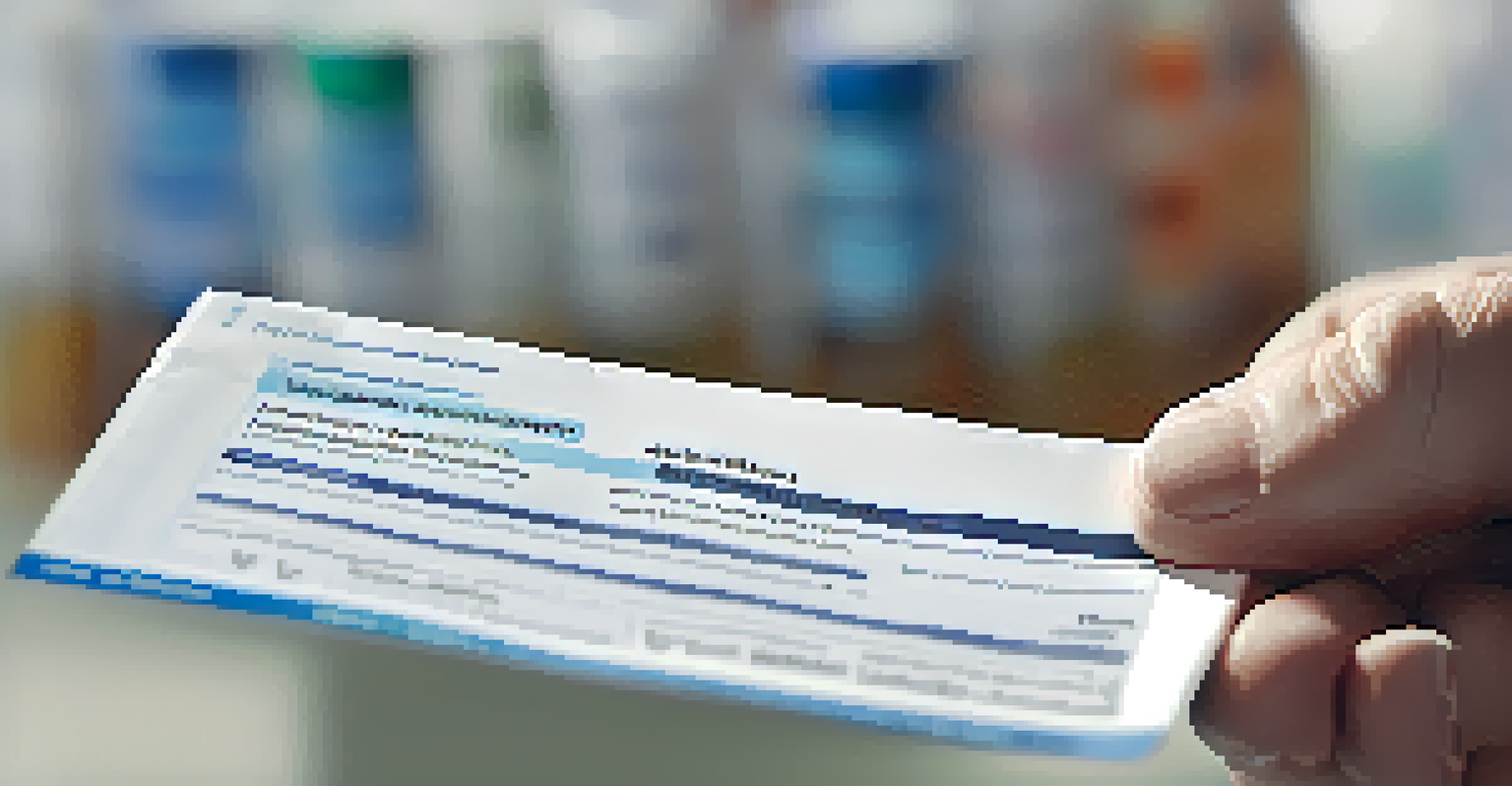The Role of Health Literacy in Preventing Miscommunication

What is Health Literacy and Why It Matters
Health literacy refers to the ability to obtain, process, and understand basic health information. It plays a crucial role in how individuals navigate the healthcare system. Without adequate health literacy, patients may struggle to make informed decisions about their care.
Health literacy is not just about reading and writing; it is about understanding health information and using it to make informed decisions.
Imagine trying to assemble a complex piece of furniture without clear instructions; that’s what navigating healthcare can feel like for those with low health literacy. This can lead to misunderstandings about medications or treatment plans. Ultimately, effective communication hinges on a patient’s ability to comprehend health information.
Improving health literacy can empower patients, giving them the confidence to engage with healthcare providers. This proactive approach can lead to better health outcomes and a more satisfying healthcare experience. In essence, health literacy is a lifeline in the often overwhelming world of healthcare.
Common Miscommunications in Healthcare
Miscommunication in healthcare can occur at any stage, from diagnosis to treatment. For instance, a doctor might explain a treatment plan using medical jargon, leaving the patient confused. This disconnect can result in patients not following through with their care or misunderstanding their symptoms.

Consider a scenario where a patient misunderstands their medication instructions due to unclear labeling. The repercussions can range from missed doses to adverse reactions. Such situations highlight the critical need for clear communication in healthcare settings.
Health Literacy Empowers Patients
Improving health literacy equips patients to make informed decisions and engage confidently with healthcare providers.
Miscommunication not only affects individual patients but can also have broader implications for public health. When patients are confused about their health, it can lead to misinformation spreading within communities. Therefore, addressing communication barriers is essential for maintaining overall community health.
The Impact of Low Health Literacy on Patient Outcomes
Patients with low health literacy often face increased risks of poor health outcomes. They may struggle to understand their diagnoses, follow treatment protocols, or recognize early warning signs of complications. This can lead to higher rates of hospitalizations and increased healthcare costs.
The ability to understand health information is essential for making informed decisions about one's health.
For example, a patient with diabetes who lacks the understanding of blood sugar management may experience severe health complications. This situation could have been avoided with proper communication and education from healthcare providers. Thus, enhancing health literacy can significantly mitigate these risks.
Furthermore, low health literacy can contribute to feelings of helplessness and frustration among patients. This emotional toll can deter individuals from seeking necessary medical help, creating a vicious cycle of poor health. Addressing health literacy can foster a more empowered patient base, leading to better health outcomes.
Strategies to Improve Health Literacy
Improving health literacy requires a multi-faceted approach. Healthcare providers can start by simplifying communication, using plain language instead of medical jargon. Visual aids, such as diagrams or videos, can also enhance understanding and retention of information.
Another effective strategy involves actively engaging patients in their care. Encouraging questions and providing opportunities for patients to repeat back information can ensure they grasp essential concepts. This interactive approach can foster a more collaborative relationship between patients and providers.
Miscommunication Harms Patient Care
Misunderstandings in healthcare due to unclear communication can lead to poor health outcomes and increased healthcare costs.
Additionally, community programs aimed at health education can play a vital role in improving health literacy. By reaching out to underserved populations, these initiatives can equip individuals with the knowledge they need to make informed health decisions. Ultimately, fostering a culture of health literacy benefits everyone.
The Role of Healthcare Providers in Enhancing Literacy
Healthcare providers are on the front lines of patient education and play a pivotal role in enhancing health literacy. By being attuned to the diverse literacy levels of their patients, providers can tailor their communication styles accordingly. This personalized approach helps bridge the gap between medical professionals and patients.
Providers should also prioritize creating a welcoming environment where patients feel comfortable asking questions. When patients feel respected and heard, they are more likely to engage in their health. This engagement can lead to improved adherence to treatment and better overall health outcomes.
Moreover, ongoing training for healthcare workers on effective communication techniques can make a significant difference. By investing in these skills, providers can enhance their ability to convey complex health information clearly. Ultimately, this commitment to clear communication is essential for fostering a healthier society.
The Importance of Community Resources
Community resources play a crucial role in supporting health literacy efforts. Libraries, schools, and local organizations can serve as hubs for health education, offering workshops and materials tailored to various literacy levels. These initiatives can empower individuals with the knowledge they need to navigate their health effectively.
For instance, a community health fair can provide valuable resources and information directly to residents. These events often include screenings, educational sessions, and access to healthcare professionals who can answer questions. Such proactive outreach can significantly enhance community health literacy.
Community Resources Enhance Literacy
Community initiatives and partnerships can significantly improve health literacy, empowering individuals to navigate their health more effectively.
Additionally, partnerships between healthcare providers and community organizations can amplify the impact of health literacy initiatives. By working together, they can create comprehensive programs that address specific health needs within the community. This collaborative approach fosters a more informed and healthier population.
The Future of Health Literacy in Healthcare
As healthcare continues to evolve, the importance of health literacy will only grow. With advancements in technology, telemedicine, and online resources, patients must be equipped to navigate these tools effectively. Ensuring that all individuals have access to clear information is essential for creating an equitable healthcare landscape.
Looking ahead, integrating health literacy into medical training can prepare future healthcare providers to prioritize clear communication. By emphasizing this skill, new providers can foster stronger patient relationships from the start. This foundational approach will contribute to a culture of health literacy in the healthcare field.

Ultimately, a commitment to improving health literacy can lead to a more informed public, better patient outcomes, and a more efficient healthcare system. As we move forward, prioritizing this aspect of healthcare will be crucial for creating a healthier future for all.